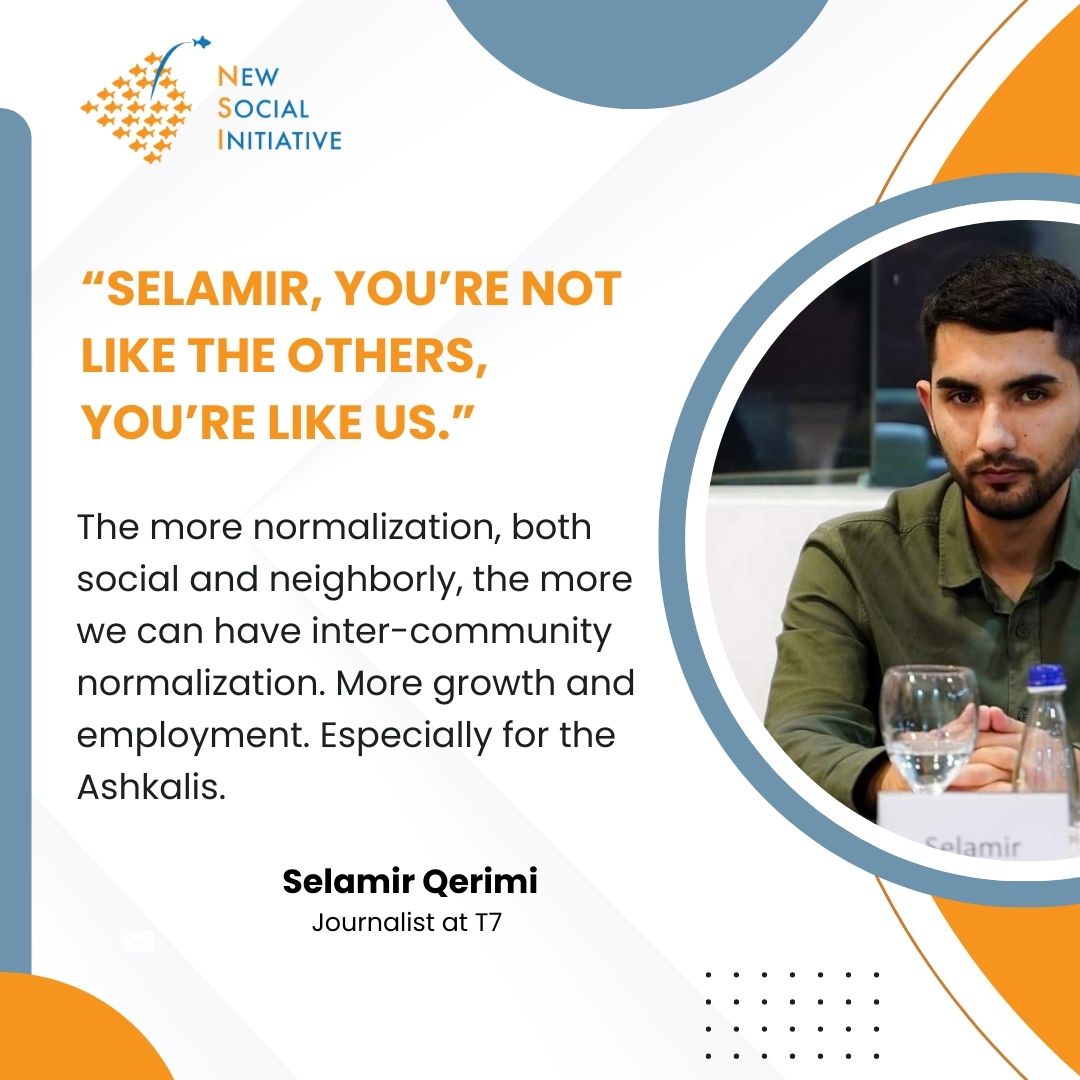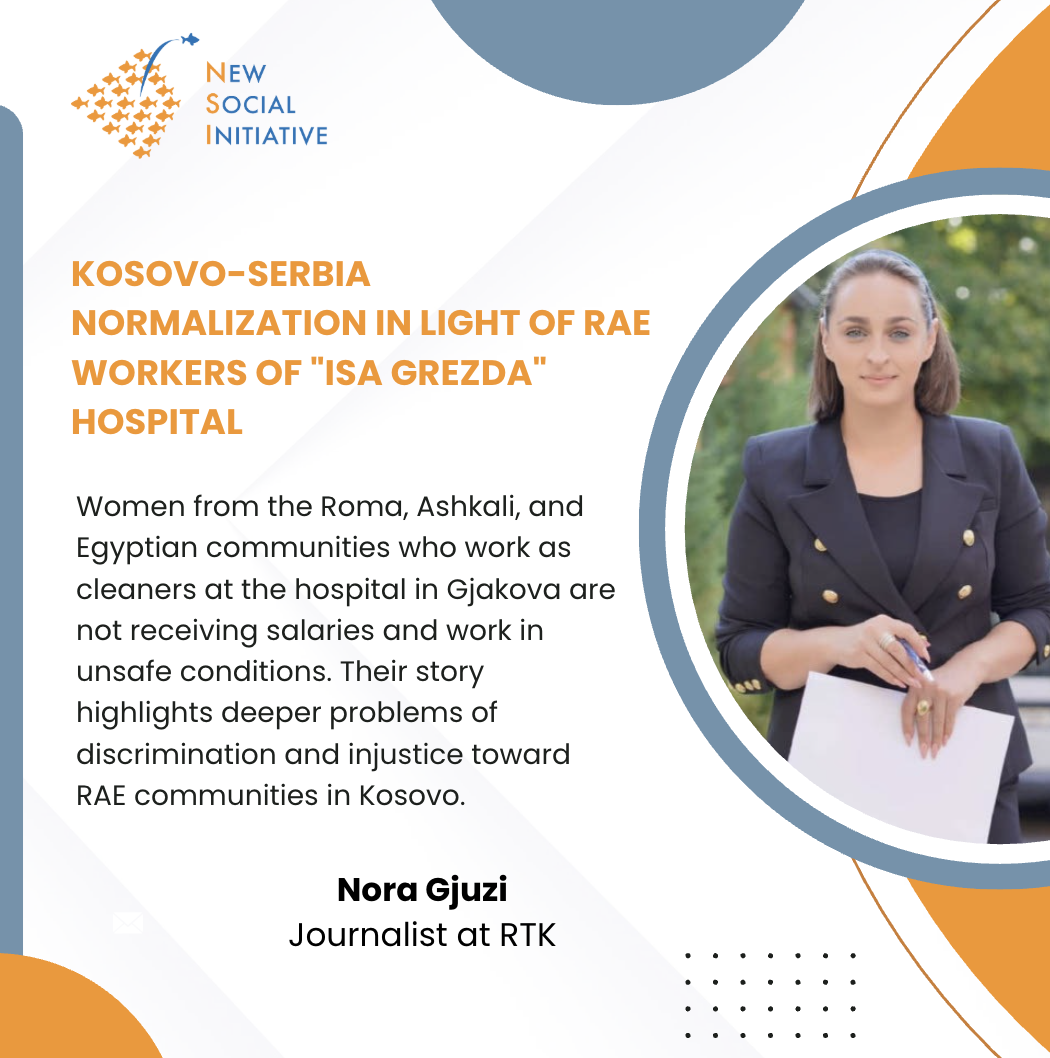“So if you are offering your gift at the altar and there remember that your brother has something against you, leave your gift there before the altar and go. First be reconciled to your brother, and then come and offer your gift. Come to terms quickly with your accuser while you are going with him to court, lest your accuser hand you over to the judge, and the judge to the guard, and you be put in prison. Truly, I say to you, you will never get out until you have paid the last penny” – Mathew*, 5:23-26.
The human nature makes it easier to hate someone previously loved than to love someone formerly hated. There is almost never a thing such as spontaneous reconciliation, hence it requires an expressed political readiness to carry it through. Any initiative purporting to be sustainable in the long run needs to persistently influence the public perception which is inherently slow(est) to shift. This puts the political elites and the media professionals at the forefront of efforts to reduce the gap in relations between the two governments, but also between the “ordinary” people.
Neighbors routinely institute, disrupt, or renew mutual relations. The mere fact that any two entities have managed to establish friendly relations once before does not necessarily translate into a default perpetuity of such relations. We have personally experienced examples how deeply rooted national enmities that hamper efforts to rebuild broken relations go on persisting for decades and even centuries. This is, in fact, why only the uninformed can find it surprising to witness that generations growing up after periods of the most intense conflicts, those who have never first-hand experienced traumatic events, still harbor hostile feeling, even at the intra-societal level.
Stopping a war, embracing coexistence, or forming an alliance – all these are types of peace, albeit different. However, a ‘cold’ state of peace does not translate or guarantee stable relations, due to a permanent risk of relapsing into animosity. Coexistence in a ‘cold’ peace lacks mutual acceptance and further integration.
A very interesting illustration in this regard is the research conducted in 2015 at the national level in Croatia, among high school graduates.
Majority of 1,146 respondents (85%) stated they could imagine being in a friendly relationship with a person of another nationality, religion or race, thus indicating tolerance on an individual level towards religious and national differences. However, when asked about the protection of minority rights in the public domain, the respondents were significantly less tolerant. As much as a half of respondents held that minorities’ important cultural features, such as language, should not be represented in state institutions.
What can be seen as a “successful” reconciliation? Is it the moment the national leaders shake hands? Or when economic relations intensify? What if, five or fifteen years into a peaceful coexistence, the relations drastically deteriorate under a new, let’s say extremely nationalist government?
Regretfully, an explosive mixture of all of the above still to a great extent determines the current relations between Belgrade and Priština. At the session on Kosovo and Metohija held in the Serbian Parliament in early February, the President of Serbia made a point to underline that he had “never in his life shaken hands with Prime Minister of Kosovo”, let alone stood for a photo during the usual and formal show of politeness at the meetings.
“Not only did I not hug Kurti, my job would be to shake hands, but I never shook hands, either”, said Aleksandar Vučić while exibiting a photo downloaded from social networks that, allegedly, depicted him and Kurti.
On the other hand, later on in the same month when speaking for “Deutsche Welle” on the occasion of 15 years since the (unilateral) proclamation of independence. Kosovo Prime Minister evaluated Kosovo as a dually successful story: one of a “struggle for the liberation of a nation”, and the other of “building a democracy, accompanied by economic development”. The interviewing journalist stopped short of asking Prime Minister what the members of other nations living in Kosovo think about the consequences of “struggle for the liberation of one nation”.
For so long as the media keeps manipulating public opinion by means of instilling fear of anything other from, and different to, their own interests, and for so long the politicians keep exploiting fake patriotism in order to pursue own political ambitions, true reconciliation is most unlikely to happen.
Having said that, it is either ignorance or deliberate denial of information on the part of their voters that undermines democracy as a system and potentially makes room for the elite to manipulate the public, as well as for major blinders caused by the politicians’ need to incessantly appeal to an uninformed electorate in order to win or to keep holding their positions for as long as possible.
Let us recall the Franco-German reconciliation process, considered the best of models. At the time, there was a robust joint leadership in the pursuit of reconciliation, not only at the beginning of the process, but also in the course of the next few decades. Admittedly, the then-French Foreign Minister Robert Schumann and the then-German Chancellor Konrad Adenauer played the crucial role in thawing antagonistic relations by signing the Schumann Plan immediately after the Second World War, and no less importantly, the joint political efforts made by Charles de Gaulle and Konrad Adenauer contributed to maintaining it, which later on led to the conclusion of the Franco-German Friendship Treaty in 1963 (Traite de l’Elysee).
The end of the Turkish-Greek reconciliation policy, initiated in the 1920s, clearly illustrates the importance of consistency in domestic policy. The commitment to reconciliation of that-time Greek Prime Minister Eleftherios Venizelos and the founder of modern Turkey, Kemal Ataturk, was successful in implanting a conciliatory mood, in spite of the still prevalent xenophobia in both Greek and Turkish societies. However, since their friendly policies lost their respective domestic support, the relations between the two countries soon reverted to being ‘strained’.
International praises for the agreement on normalization of diplomatic relations between the Turkish and Armenian Governments from October 2009 proved incapable of preventing violent protests by political parties and the civil societies in those two countries.
Former enemies may remain in dispute over serious political issues, but what they can do is to basically agree that such disputes must be resolved by non-military means; this is the cornerstone of a stable peace, as opposed to a ‘cold’ one. On the other hand, entities can at any point in time decide to go back to warring to solve their issues.
And yet, in this era of globalization, there are many issues that cannot be solved by a single country, even if a nuclear super-power, nor can, in this sense, an input of the “most significant world peace project” (the European Union) suffice to make an overnight success. The growing trend of interdependence teaches us that we must face the future together. If a “love thy neighbor” attitude seems to be overly idealistic, it is important to keep in mind that in the domain of international politics, the consequences of a missed shortly-lived window of opportunity to mend relations, can be huge.
* Taken from Matthew, English Standard Version; the original text used Serbian translation rendered by the Holy Synod of Bishops of the Serbian Orthodox Church
This Op-ed is published as part of the project “Strengthening Youth Civic Participation in Political Processes” implemented by New Social Initiative (NSI) funded by National Endowment for Democracy (NED).











